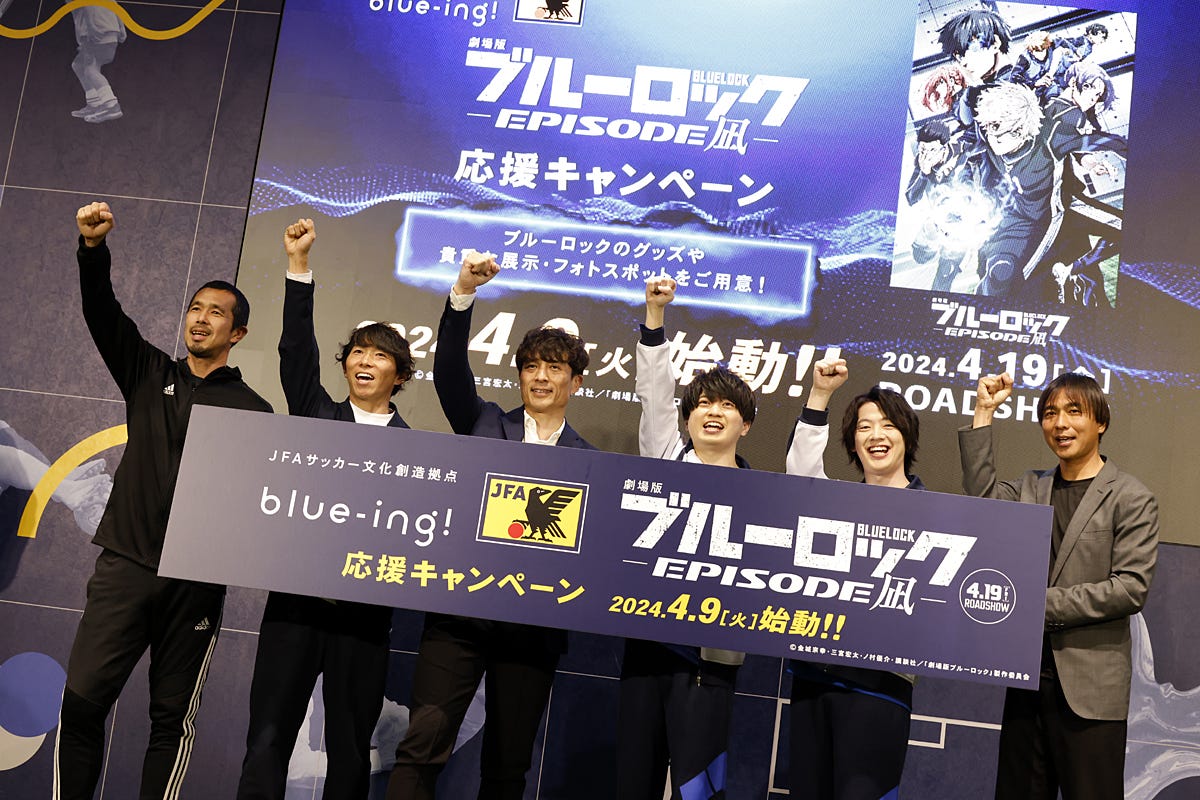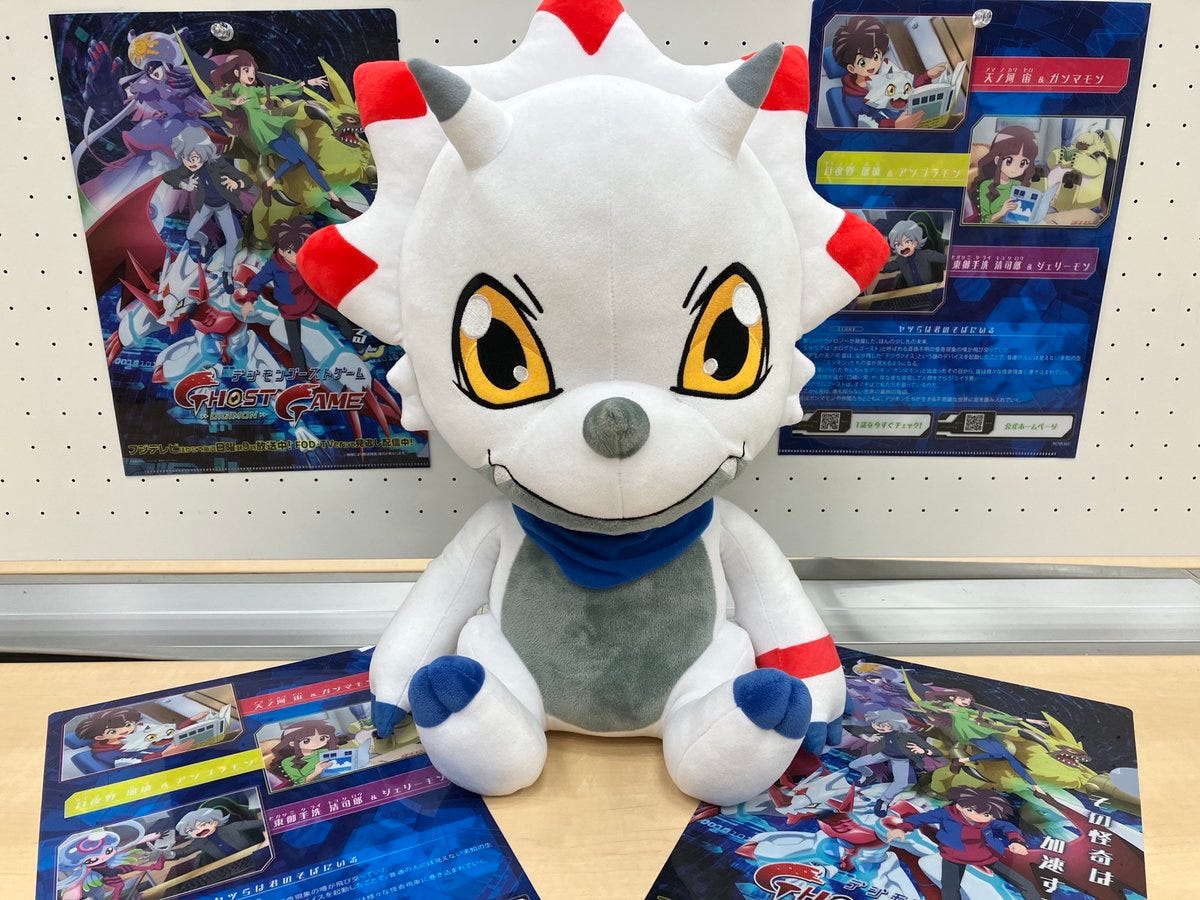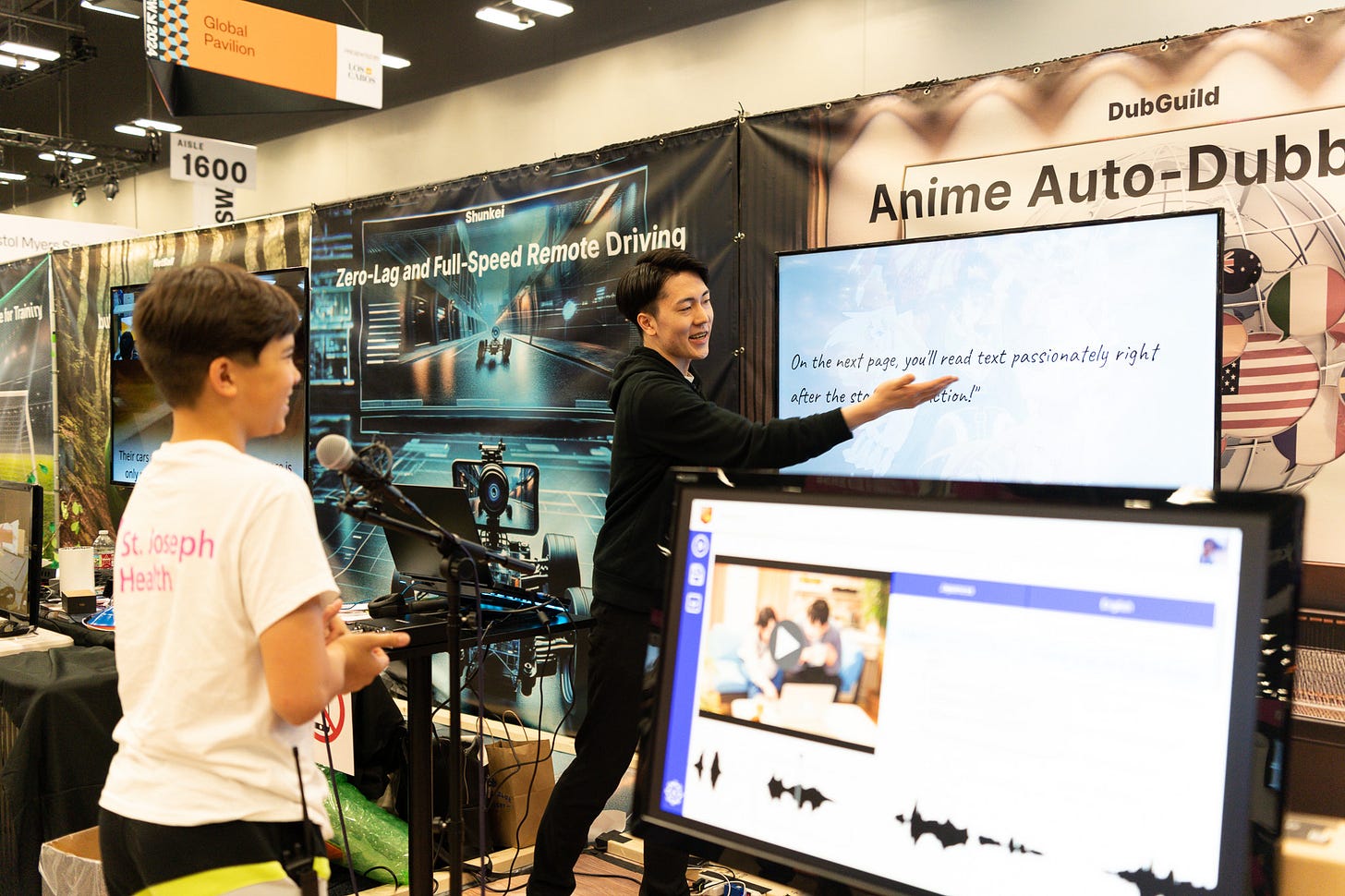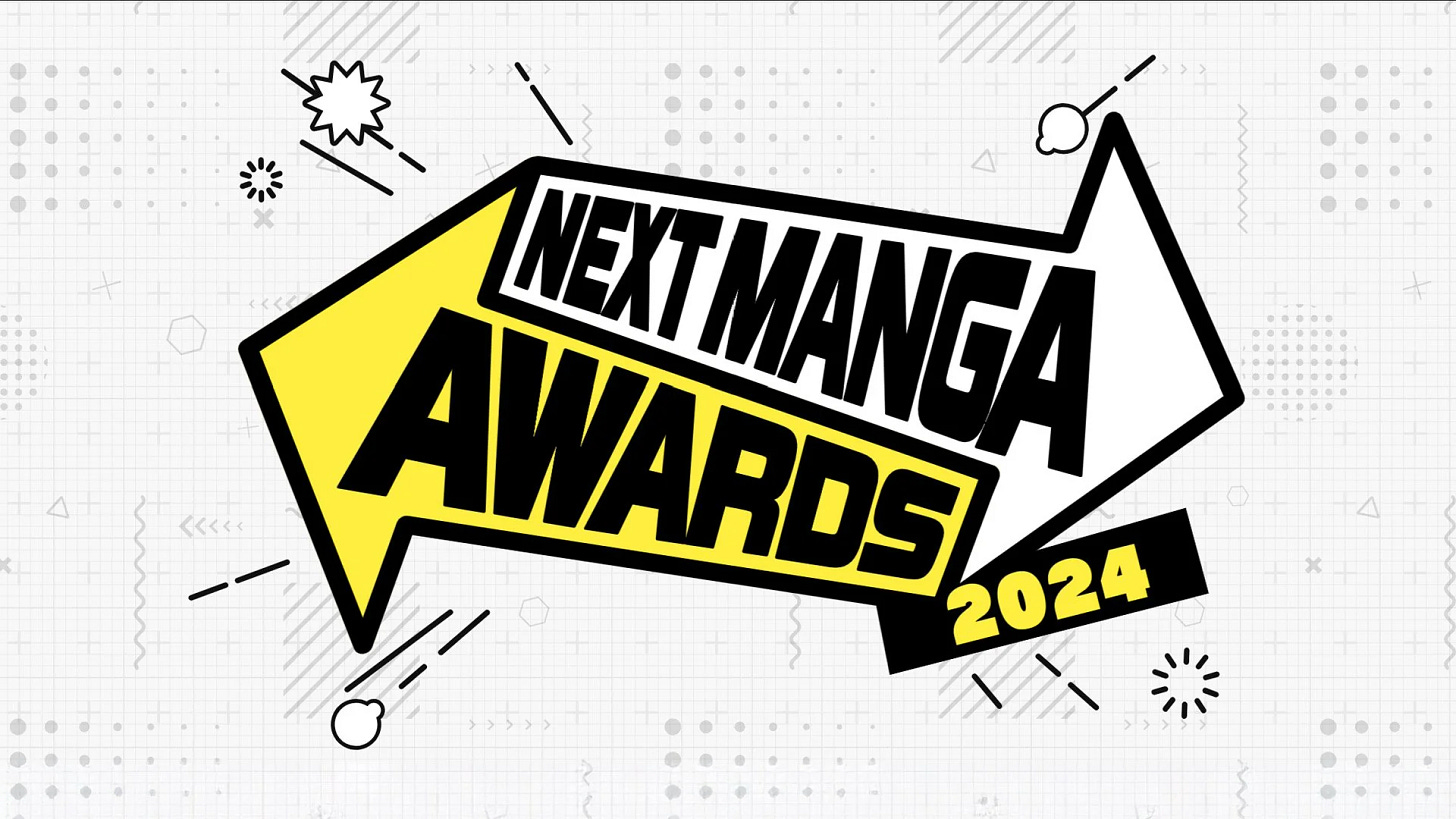Kodansha brings manga IPs to cinemas
Plus: Toei Animation pauses 'Digimon' home videos; Overseas fans rescue Gonzo anime series; Researchers create automated anime dubbing tech; and more
This is your weekly Animenomics briefing, covering the business of anime and manga. Today is Wednesday, June 26, 2024.
In case you missed it: Anime directors Atsuko Ishizuka and Masaaki Yuasa and screenwriter-turned-director Mari Okada are among filmmakers invited to join the Academy of Motion Picture Arts and Sciences class of 2024.
In This Corner of the World assistant director Chie Uratani and Polygon Pictures CEO Shuzo Shiota also received invitations.
‘Blue Lock’ film launches Kodansha into movie theaters

Blue Lock: Episode Nagi opens in movie theaters in the United States on Friday as part of Crunchyroll’s campaign to bring more anime films to the region, but it’s also a major test for Kodansha, the title’s original manga series publisher.
Why it matters: Kodansha is Japan’s second largest manga publisher in terms of revenue, but anime films based on its manga have never topped the country’s box office rankings.
Until about a decade ago, anime franchise films based on manga were largely the domain of manga publisher Shogakukan, which manages popular titles like Detective Conan and Doraemon.
In the last 15 years, Shueisha also jumped in with investments in anime film adaptations of its manga, bringing One Piece, Dragon Ball, and Demon Slayer to audiences worldwide.
By the numbers: According to an analysis by Nikkei×Trend, 95 of Japan’s 100 highest-earning anime movies are by directors Hayao Miyazaki, Makoto Shinkai, or Mamoru Hosoda, or are based on a Shueisha or Shogakukan manga.
What’s happening: Blue Lock: Episode Nagi, based on a soccer manga serialized in Kodansha’s Weekly Shonen Magazine, capitalizes on the success of its 2022–2023 anime series adaptation.
As the anime series took Asian markets by storm, Blue Lock became Japan’s best-selling manga series last year in terms of physical copies sold, beating out popular titles like Jujutsu Kaisen and One Piece.
How it happened: Hirotoshi Kurita, editor-in-chief of Weekly Shonen Magazine from 2017 to 2022, led the effort to bring more Kodansha manga titles to cinemas, says entertainment researcher Atsuo Nakayama.
Kurita first grew the number of fantasy and romantic comedy titles suitable for anime adaptations, immediately followed by battle action titles.
In 2021, a live-action Tokyo Revengers film based on the action thriller manga earned ¥4.5 billion (US$28.2 million), ranking fifth among Japan’s highest-earning films that year.
The following year, The Quintessential Quintuplets, a romantic comedy series, saw its anime film sequel earn ¥2.24 billion (US$14 million) domestically, plus another US$1.3 million abroad.
What’s next: Blue Lock: Episode Nagi, which also emerged out of the effort to add more action titles, has so far earned ¥1.7 billion (US$10.7 million) in Japan, and it’s now looking to extend that streak overseas.
Fewer home videos, more events for ‘Digimon’ franchise

Toei Animation, the anime production studio that regularly produces Digimon anime titles, told shareholders this week the company is forgoing home video production of some Digimon titles amid the cooling home video market in Japan.
Driving the story: A fan of the recent Digimon Ghost Game series who attended Tuesday’s Toei Animation shareholder meeting reported the statement in a blog entry published this week.
The fan purchased shares of Toei Animation specifically so that they could ask about Digimon Ghost Game’s apparent lack of merchandise at the meeting.
Why it matters: As previously reported by Animenomics, domestic sales of Blu-ray and DVD discs for children’s anime like Digimon Ghost Game fell 23 percent last year compared to 2022.
Digimon Ghost Game, which ended its 18-month broadcast run in March 2023, is the only series in the franchise to not have a home video release.
What they’re saying: Toei Animation told shareholders that Digimon remains an important property for the company, so the lack of home video releases doesn’t mean Digimon is going away.
“Digimon is also very popular overseas, and we are currently planning regular events such as exhibitions. Various measures are being considered,” Toei Animation senior director Satoshi Shinohara told attendees.
The same fan also sent an inquiry to Happinet, which manufactures Digimon home video on behalf of Toei Animation, but was told that there are no plans for a home video release of Digimon Ghost Game.
The bigger picture: Toei Animation also told shareholders that the company is pursuing multiple projects to bring more of its anime properties overseas, such as the Pretty Cure franchise and the recent cult hit Girls Band Cry.
Clippings: Next Manga Awards’ 100 finalists named
Kadokawa’s Next Manga Awards committee has announced 100 finalists in the event’s 2024 edition, narrowed down from 8,212 candidates. Public voting is now open until July 8, and the final results will be announced in August. (Oricon News)
Why it matters: Since public voting was opened to international readers in 2021, the Next Manga Awards have become a barometer to identify globally trending print and digital manga titles.
Anime studio WIT STUDIO has acquired 14.3 percent ownership of Qdopp, the operator of English-language anime news website Honey’s Anime and Arabic-language anime news website AniMENA. (Animation Business Journal)
WIT STUDIO is a subsidiary of IG Port, which has recently increased investments in the Middle East, including signing a distribution deal in Saudi Arabia last year.
Illustrator Nagano’s Chiikawa manga has found an avid following among young people in China, who eagerly bought CN¥8 million (US$1.1 million) of character merchandise over three days during a pop-up store in Shanghai. (The Mainichi)
Naver Webtoon’s Nasdaq debut is set for Thursday, with the company aiming to raise up to US$315 million in its stock market listing. With about 170 million monthly active users, Naver’s webtoon publishing affiliate will have an estimated post-listing market value of up to US$2.67 billion. (BusinessKorea)
Overseas audiences rescue Gonzo studio anime series
“Blue Submarine No. 6 is definitely the work that put Gonzo in the history books, but Afro Samurai is also indispensable when talking about Gonzo. It isn’t very famous in Japan, but it’s such a hit that there is no young anime fan in the United States who doesn’t know it.”
— Shinichiro Ishikawa, Gonzo president and CEO
Context: In an interview with the Comic Natalie news website, Ishikawa retells the role anime audiences outside Japan play in the history of the Gonzo anime production studio.
Catch up quick: Ishikawa, a co-founder of one of Gonzo’s two predecessor companies, took over ownership of Gonzo in 2020 by acquiring all its shares from advertising giant ADK.
Gonzo hasn’t produced an anime since becoming independent, but that is changing with next year’s sequel of Kakuriyo: Bed and Breakfast for Spirits, an anime series aired in 2018.
“The sequel to Kakuriyo: Bed and Breakfast for Spirits was decided thanks to overseas fans,” Ishikawa told Comic Natalie. “While there are many male users on Crunchyroll, the world’s largest anime streaming site, Kakuriyo was watched just as much as popular works aimed at men even though it was a show aimed at women.”
Researchers develop automatic dubbing tech for anime

Graduate students at the University of Tokyo are researching technology that can automatically create English-language dubbing of anime using a combination of machine translation and artificial intelligence.
Why it matters: DubGuild, the startup founded by the four graduate students, has received support from the National Institute of Advanced Industrial Science and Technology, a research facility sponsored by the Japanese government.
Outside Japan, there is growing concern over AI’s potential impact on the work of human translation and localization teams as anime streaming giant Crunchyroll tests AI technology in subtitling work.
How it works: Speaking to the ASCII technology news website, DubGuild group representative Yuto Nozaki said the team is developing a speech synthesis system that replicates the original voice actor’s tone and emotional depth.
Nozaki said he and the other students initially tested their idea using a combination of OpenAI’s ChatGPT service for translation and text-to-speech technology, but they found the results lacking in emotion.
In March, the group demonstrated a prototype of the technology at the SXSW Conference in Austin, Texas.
What they’re saying: Nozaki told ASCII that former anime production company employees interviewed by DubGuild said demand for automated dubbing systems would likely come from U.S. streaming platform providers.
Yes, but: “In order to develop this business, we need to continue to discuss issues such as copyright of dialogue and the publicity rights of voice actors,” said Nozaki.
“The reason I started this research in the first place is because I want to spread the word about how great Japanese voice actors are,” he added. “I want to do things that everyone can be happy with, while ensuring that voice actors and sound directors are fairly compensated.”
Animenomics is an independently-run and reader-supported publication. If you enjoyed this newsletter, consider sharing it with others.




If there's one thing that can be said, the retiring of home video and advent of AI dubbing marks the end of an era.